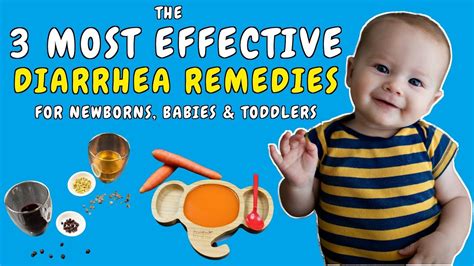How to Stop Diarrhea in Babies Fast: A Parent's Guide
Dealing with a baby's diarrhea is incredibly stressful for any parent. Seeing your little one uncomfortable and potentially dehydrated is heartbreaking. This guide offers advice on how to manage your baby's diarrhea and when to seek professional medical help. Remember, this information is for guidance only and does not replace the advice of a pediatrician.
Understanding Infant Diarrhea
Before we dive into solutions, let's understand what constitutes diarrhea in babies. It's generally characterized by frequent, loose, or watery stools, often more than usual for your baby. The stools might also be unusually foul-smelling or contain mucus or blood. The frequency and consistency are key indicators.
Causes of Diarrhea in Infants
Several factors can trigger diarrhea in babies, including:
- Viral infections: These are the most common culprits, often accompanied by other symptoms like fever and vomiting.
- Bacterial infections: These can be more serious and may require specific treatment.
- Food allergies or intolerances: Certain foods might trigger diarrhea in sensitive babies.
- Medication side effects: Some medications can have diarrhea as a side effect.
- Parasites: Less common, but possible.
Home Remedies for Baby Diarrhea (Consult your pediatrician first!)
While home remedies can offer some comfort, it's crucial to consult your pediatrician before trying any of these, especially if the diarrhea is severe, persistent, or accompanied by other symptoms.
1. Oral Rehydration Solutions (ORS)
This is the most important step. Diarrhea can lead to dehydration, which is a serious concern for infants. ORS, available at most pharmacies, replenishes lost fluids and electrolytes. Follow the instructions carefully. Never use homemade solutions without consulting your doctor.
2. Breastfeeding or Formula Feeding
Continue breastfeeding or formula feeding your baby as usual. Breast milk offers antibodies and nutrients that support your baby's recovery. Don't change your baby's diet unless advised by your pediatrician.
3. Bland Diet (for older babies who are eating solids)
If your baby is older and eating solids, a bland diet might help. Focus on easily digestible foods like plain rice cereal, bananas, applesauce, and toast. Avoid sugary drinks and foods high in fat.
4. Rest and Comfort
Ensure your baby gets plenty of rest. Offer comfort measures like skin-to-skin contact and gentle rocking.
When to Seek Immediate Medical Attention
Do not hesitate to contact your pediatrician immediately if your baby:
- Shows signs of severe dehydration: Sunken eyes, dry mouth, decreased urination, lethargy, or rapid breathing.
- Has bloody or black stools.
- Has a high fever.
- Is vomiting excessively.
- Has diarrhea lasting longer than 24 hours.
- Appears unusually lethargic or unwell.
Preventing Diarrhea in Babies
While you can't always prevent diarrhea, taking some precautions can reduce the risk:
- Practice good hygiene: Wash hands frequently and thoroughly.
- Ensure safe food handling: Prepare and store food properly.
- Keep the baby's environment clean.
Disclaimer: This information is for general knowledge and does not constitute medical advice. Always consult your pediatrician for any concerns regarding your baby's health. They can provide personalized recommendations based on your baby's specific situation.
